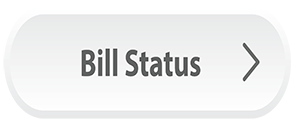In recent years, we’ve seen an uptick in community association related bills introduced by the Colorado legislature (with as many as 22 being tracked by the CAI Legislative Action Committee during the 2024 legislative session).
Below is a summary of legislation introduced so far during the 2025 legislative session that would directly impact community associations:
HB25-1043: Owner Equity Protection in Homeowners’ Association Foreclosure Sales
Introduced: 01/08/2025
Sponsors: Representatives Naquetta Ricks & Jennifer Bacon, Senator Tony Exum
Bill Summary:
Prior to taking enforcement actions to recover money owed to a unit owners’ association and related collection costs, the bill requires the association to be in compliance with community association law and the association’s declaration, bylaws, articles, and rules and regulations.
An association’s written policy concerning the collection of unpaid assessments must require the notice of deficiency sent to a unit owner to include:
- An advisement that the unit owner may request a copy of the association’s ledger verifying the amount owed, which copy of the ledger shall be sent to the unit owner no later than 7 business days after the request; and
- An advisement that free information relating to the association’s collection of assessments and its ability to foreclose and force the sale of a unit is available online through the HOA information and resource center.
The bill requires the division of real estate in the department of regulatory agencies (division) to present data to certain committees of the general assembly concerning the number of requests the HOA information and resource center receives annually concerning credit counseling, the collection of assessments, or foreclosure actions.
Before initiating a legal action to foreclose an association lien, the association must send written and electronic notices to the unit owner stating that the unit owner has the right to participate in credit counseling at the unit owner’s expense in order to understand the consequences of foreclosure and that information about credit counseling may be found on the HOA information and resource center’s website.
As part of an association’s annual registration with the director of the division, the association shall submit information concerning:
- The number of unit owners that were, at any time during the preceding 12-month period, 3 or more or 6 or more calendar months delinquent in the payment of an annual assessment or special assessment;
- The number of judgments obtained against unit owners;
- The number of payment plans entered into with unit owners; and
- The number of foreclosure actions filed by the association.
If an association forecloses an association priority lien against a unit owner’s home (unit) in an association-governed community, and the unit is sold at a sheriff’s auction, the bill requires the association to make a minimum bid for the unit that is not less than 80% of the fair market value of the unit, as determined by an independent appraisal or other methods described in the bill. The bill amends the foreclosure sale statute to conform to the minimum bid requirement required in the bill.
(Note: This summary applies to this bill as introduced.)
HB25-1117: Vehicle Immobilization Company Regulation
Introduced: 01/27/2025
Sponsors: Representatives Junie Joseph & Andrew Boesenecker, Senators Julie Gonzales & Mike Weissman
Bill Summary: The bill amends the statutes requiring a permit to boot a vehicle to broaden the permit requirement to include any application, without the appropriate consent, of a device intended to prevent the normal operation of a motor vehicle.
Under current law, a permit holder may be denied a permit to boot a vehicle upon application when the permit holder or owner has been convicted of a felony within the last 5 years. The bill allows the public utilities commission (commission) to suspend, revoke, or refuse to renew a permit to immobilize a vehicle for felonies and immobilization-related offenses. An applicant must disclose each person that is a principal owner in the vehicle immobilization company (company) in an application.
The commission is authorized to deny an application for or suspend, revoke, or refuse to renew a permit of a company based on a determination that it is not in the public interest for the company to possess a permit. The determination is subject to appeal. Possession of a permit is rebuttably presumed to be not in the public interest if a company has willfully and repeatedly failed to comply with the relevant law.
The bill adds the following new duties for companies:
- Before immobilizing a vehicle, the company must document the vehicle’s condition and the reason for the immobilization. Standards are set for the documentation, including taking photographs.
- Upon demand by an authorized or interested person, the company must provide copies of the photographs, and if the company does not provide the photographs and a vehicle is damaged, it creates a rebuttable presumption that the company damaged the vehicle or did not have authority to immobilize the vehicle;
- When an immobilization device is being removed from a vehicle, a company must provide adequate lighting to inspect the vehicle for damage;
- A company shall display its name, the permit number, and a phone number of the company on each company vehicle used in immobilization. Standards are set for the display.
- The representative of a company must have business identification visibly worn at all times while immobilizing a vehicle or accepting payment;
- If a vehicle has been immobilized by a company, another company must not immobilize the vehicle;
- If a company applies more than one immobilization device to a vehicle, the company may not charge more than once for the removal of all the immobilization devices;
- A company must provide, upon request, evidence of the company’s commercial liability insurance coverage;
- A company must immediately accept payment and release the vehicle if offered in cash or by valid major credit card;
- Upon request, a company must disclose accepted forms of payment;
- A company must provide an itemized bill showing each charge and the rate for each fee incurred as a result of an immobilization and any fee that caused the immobilization; and
- A company may not pay money or provide other valuable consideration for the privilege of immobilizing vehicles.
A company is prohibited from immobilizing a vehicle on private property unless:
- The immobilization is ordered or authorized by a court order, an administrative order, or a peace officer or by operation of law; or
- The company has received permission for each individual immobilization, within the 24 hours immediately preceding the immobilization, from a specified person. The company must retain the permission for 3 years.
A property owner with tenants must give each tenant adequate notice of parking regulations as outlined in the bill. A company may not immobilize a vehicle in a parking space or common parking area without the company or property owner giving 24 hours’ written notice at least 24 hours before immobilizing the vehicle, unless the vehicle owner or operator has received 2 or more previous notices for parking inappropriately in the same manner. Standards are set for the notice.
If a vehicle parks 3 or more times in the same inappropriate manner, the company or property owner need not give the notice, but the company must place a notice on the immobilized vehicle that contains the phone number of the company, the normal operating hours of the company, and the phone number to contact the company outside of normal operating hours.
To immobilize a vehicle on private property normally used for parking, the following must be provided upon entering the private property:
- Notice of the parking regulations; and
- Notice that a violation of the regulations subjects the vehicle to immobilization at the vehicle owner’s expense.
Unless the immobilization is based on an order given by a peace officer, a company may not immobilize a vehicle on private property because the vehicle’s registration has expired.
For a company to immobilize a vehicle, the property owner must have posted signage that meets the size, visibility, and placement standards of the bill and contains the following information:
- The restriction or prohibition on parking;
- The times of the day and days that the restriction is applicable, but, if the restriction applies 24 hours per day, 7 days per week, the sign must say “Authorized Parking Only”;
- Notice that violating the regulation subjects the violating vehicle to be immobilized at the vehicle owner’s expense; and
- The name and telephone number of the company authorized to perform immobilization on the private property.
A company may not patrol or monitor property to enforce parking restrictions on behalf of a property owner.
If a company has immobilized a vehicle on private property, the company must give a written notice of the person’s ability to make a complaint to the commission in accordance with the standards of the bill.
A company must release a motor vehicle either within 120 minutes after being contacted outside the company’s normal business hours or within 90 minutes during the company’s normal business hours. A company must immediately release a vehicle without charge to a towing carrier when evidence is presented that the towing carrier has authorization to conduct a nonconsensual tow or law-enforcement-directed tow. A company must immediately release an immobilized vehicle if the person retrieving the vehicle pays at least 15% of the fees, not to exceed $60, and the person signs a form affirming that the authorized or interested person owes the company payment for the appropriate fees.
A company must charge a reduced release charge set by the commission and immediately release the vehicle if the vehicle is released after an employee of or agent of the company starts to immobilize the vehicle but before the agent or employee leaves the private property.
A company must retain evidence of giving the notices and disclosures required in the bill for 3 years and provide the evidence to the commission or an enforcement official upon request.
Generally, the bill does not apply to an immobilization ordered by a peace officer or technician directed by a peace officer, an immobilization in a parking space that serves a business if the parking space is on commercial real estate, or an immobilization ordered by a municipality, county, or city and county.
A violation of the bill is generally a deceptive trade practice and is subject to enforcement by the attorney general’s office or a district attorney.
(Note: This summary applies to this bill as introduced.)
HB25-1123: Homeowners’ Association Alternative Dispute Resolution
Introduced: 01/08/2025
Sponsors: Representatives Naquetta Ricks & Junie Joseph
Bill Summary: Under current law, common interest communities are encouraged to use mediation prior to filing a complaint with the court. The bill requires a dispute between a unit owner and a unit owners’ association to go through an internal dispute resolution process and mediation before the parties can file a complaint with the court. If the parties are unable to reach a mediation agreement, the bill allows the parties to undergo arbitration or commence a legal proceeding.
(Note: This summary applies to this bill as introduced.)
HB25-1182: Risk Model Use in Property Insurance Policies
Introduced: 02/10/2025
Sponsors: Representatives Brianna Titone & Kyle Brown, Senators Lisa Cutter & Cleave Simpson
Bill Summary:
For the purposes of underwriting homeowners and other property insurance policies, the bill requires insurers who use a wildfire risk model, a catastrophe model, a combination of models, or a scoring method to adhere to specific requirements that concern the sharing of information with the commissioner of insurance and the public, the inclusion of specific activities in the models, and providing notices to policyholders.
(Note: This summary applies to the reengrossed version of this bill as introduced in the second house.)




